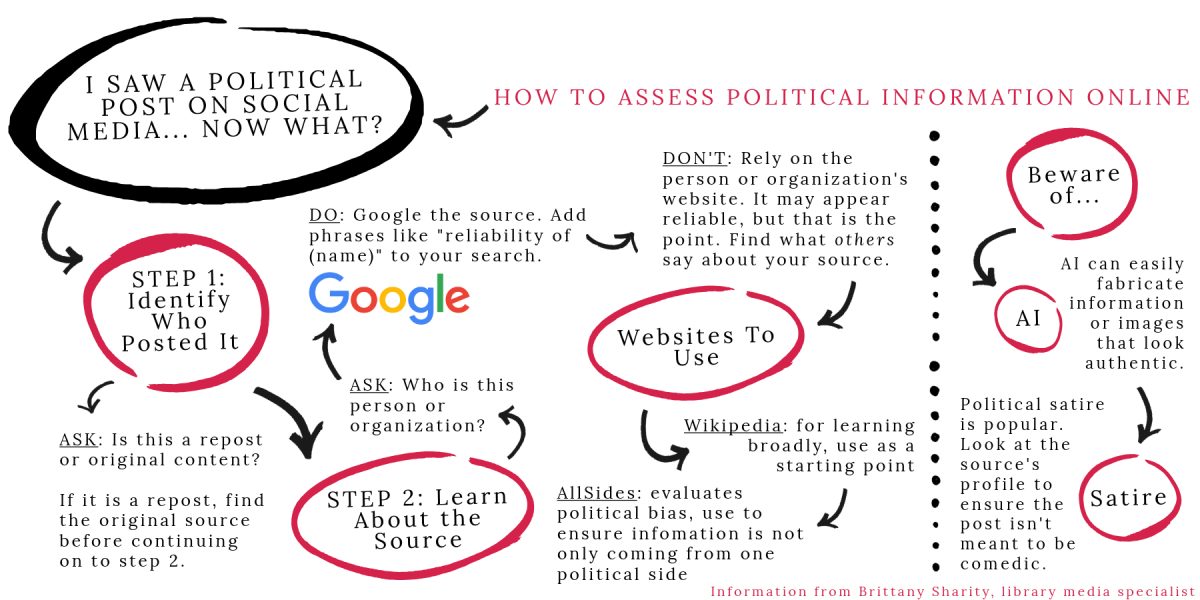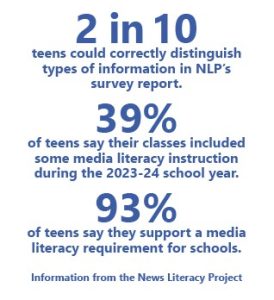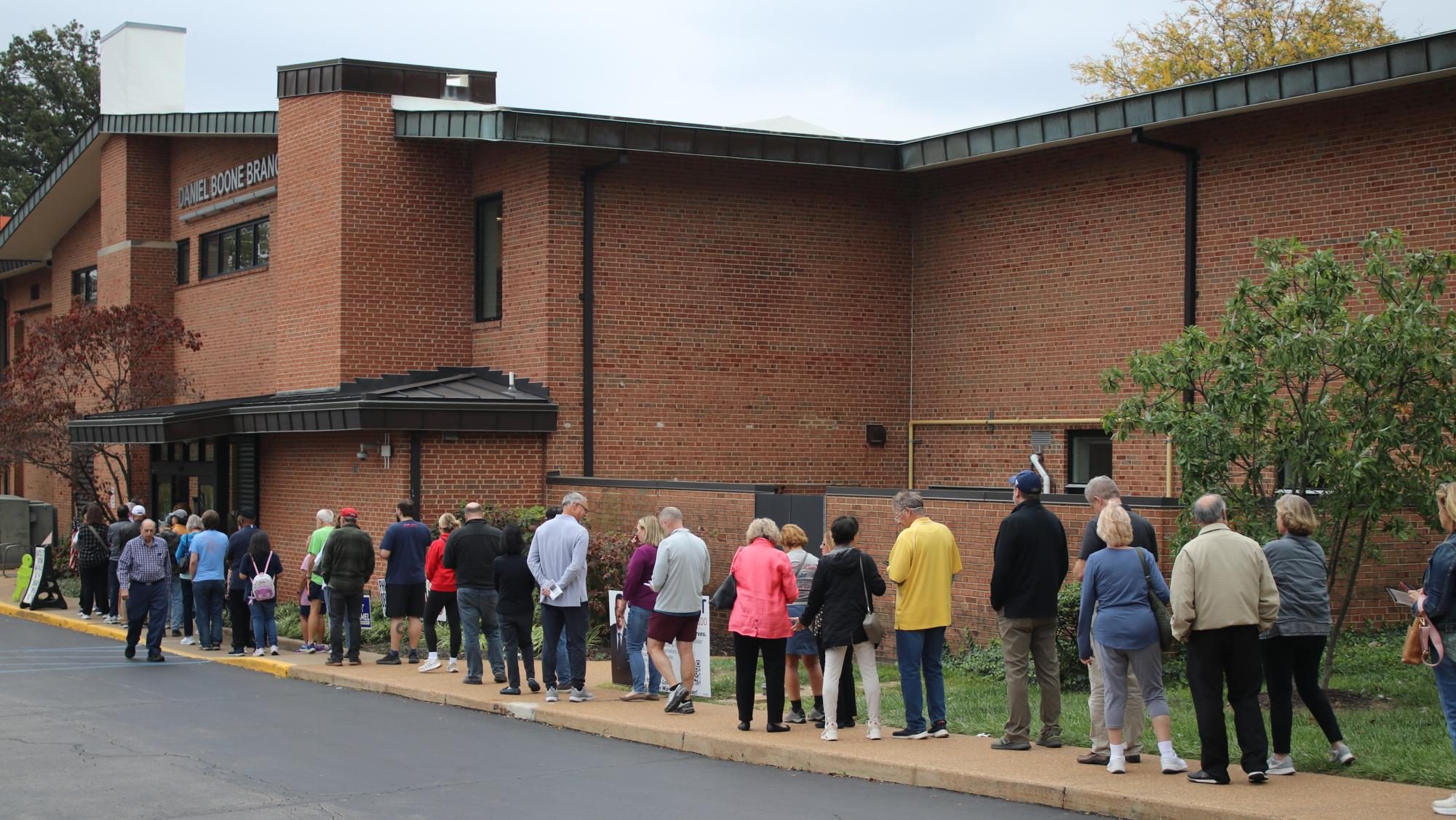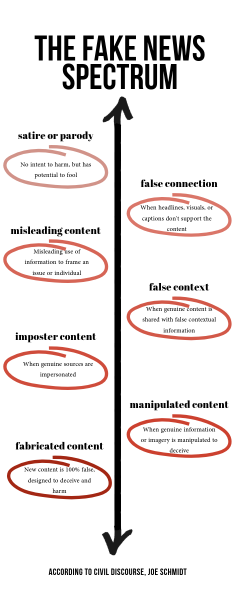Ben Morris, freshman, a member of politics club, said he has developed a keen interest in political information and is saddened by how prevalent misinformation and disinformation is today. With the coming election, he said it’s especially important to be aware.
“You need to pay attention to the bias of who’s posting the article and just be careful, really,” Morris said. “If something seems a bit too outrageous or just a bit too convenient, don’t take it at face value.”
Morris’ concern has data behind it. Brittany Sharitz, librarian, said about 40% of young people seek Instagram and TikTok for information instead of a Google search. About one in five TikTok videos have some form of misinformation, so she said it is essential to have increased awareness moving forward in a digital age.
Due to widespread fake news amid the upcoming election, the librarians presented to language arts classes about political misinformation and disinformation from Monday, Oct. 7, to Friday, Oct. 18. The presentations included topics ranging from identifying rumors to algorithm awareness and how to diversify one’s media intake.
“We’re just hoping to bring awareness to how much misinformation is out there, especially during a political season,” Sharitz said. “While we realize that the majority of our student population can’t vote yet, it’s still very important to be informed and stop to reflect on what we can and can’t trust.”

One of the resources the library utilizes is the News Literacy Project (NLP), a nonpartisan, nonprofit organization with the goal of teaching high school students to be more critical in how they think about “news.”
Jostin Grimes, NLP West Coast senior manager for district partnership, said the organization offers a plethora of resources for educators and students.
“We really want to teach students how to think, not necessarily what to think,” Grimes said.
Misinformation can be unintentional, like a news organization unknowingly publishing or broadcasting incorrect information. Often, credible news organizations will issue a correction within a reasonable time frame. However, disinformation is deliberately created and propagated to mislead or distort information.
Grimes said one of the main ways political rumors start is from individuals carelessly sharing opinions online without any credible evidence. Once these rumors spread by others repeating them, they are sometimes picked up by news outlets with large audiences.
“You have individuals who are consuming this information that really don’t have those critical thinking skills and the ability to analyze what is real news and what we may call misinformation or ‘fake news’,” Grimes said.
Grimes said the online information landscape has become more turbulent in the last several years.
“We have a lot more platforms than we may have had 5 or 10 years ago, the biggest one being X, formerly known as Twitter,” Grimes said. “In terms of the verification process on how folks are considered ‘verified,’ it’s like a pay-to-play thing now; anyone can be verified.”
Grimes said platforms like TikTok are now looked at as search engines or sources for news.
“There’s really no way in which you can evaluate who’s telling the truth and who’s giving you misinformation or disinformation,” Grimes said.
The biggest change the NLP has seen in the last few years has been the introduction of artificial intelligence (AI), Grimes said.
“Don’t let AI undermine your willingness to use those basic news literacy skills that you were using for something that wasn’t AI,” Grimes said. “Don’t allow AI to distort how you consume information.”

Carl Taraporevala, senior, follows both the RNC and the DNC on Instagram.
“I see the bias in both political parties and how they try to sway voters,” Taraporevala said.
Taraporevala said he fact checks most information he sees online by using a strategy called lateral reading, opening up another tab in a browser to research a claim or source and determine its validity. Sometimes he said it is apparent that a source is intentionally misleading viewers, but sometimes they simply get a fact wrong.
“When I’m scrolling on Reels or something and some person is talking about something political, I try to be really careful because most people don’t have any expertise,” Taraporevala said.
When seeing political information on social media, Taraporevala said individuals should be checking credible or trusted news sources off the platform to ensure they have their facts straight.
This is especially important due to the “echo chamber” or “filter bubble” effect of social media algorithms, he said.
“This is where you put yourself in a place where you only get information you agree with,” Taraporevala said. “Try to look outside of it, because sometimes information that you don’t believe is true, and information that you do believe, is false.”





